Glasgow COP26 climate conference: Angus Taylor reveals Australia’s priority
Scott Morrison will arrive in Glasgow with a net zero 2050 target and a clear goal. But critics say one thing could deal him out.
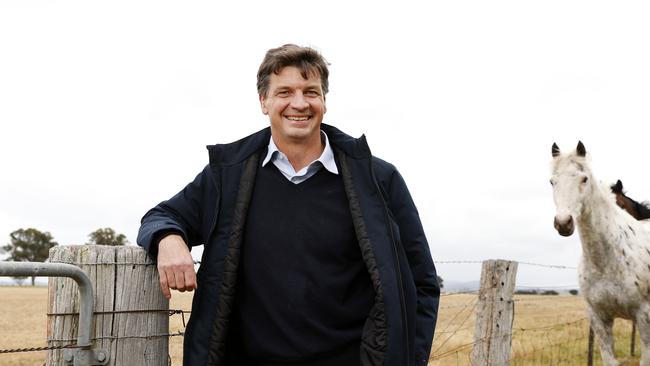
Environment
Don't miss out on the headlines from Environment. Followed categories will be added to My News.
Australia will announce increased support for the island nations of the Pacific and call for more transparency in emissions reporting from all nations at COP26, Energy and Emissions Reduction Minister Angus Taylor said.
Article six of the Paris Agreement currently allows nations to sell emissions credits to other countries, but also simultaneously count those reductions toward their own tallies, but debate over this “double counting” could be one of the big bunfights at Glasgow. Australia will be calling for it to stop.
“We want to see more integrity in the use of cross-border offsets,” Mr Taylor said.
“It’s a broader issue which is to make sure crediting systems have high integrity. We think this is something Australia does extremely well. The credits under our emissions reduction fund are very highly regarded, and we’d like to see this more generally around the world.”
Critics have suggested the lack of an updated 2030 emissions reductions target could see Australia relegated to the sidelines at Glasgow, but Mr Taylor stressed our reporting mechanisms were a model for other countries to emulate.
“For us it’s every quarter, every gas, every sector,” he said.
“There’s no country in the world that has delivered that consistently over many years. We have. The UK used to do it, but they’ve stopped doing it. The Netherlands has just started doing it, copying our model. We’d like to see more countries doing it. That transparency is very powerful.”
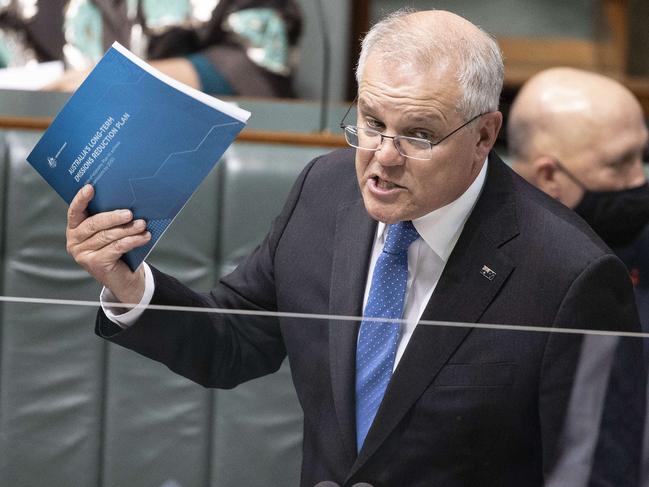
Climate finance is set to be another vexed issue at Glasgow – and it’s a pressing issue for the low-lying Pacific island nations, which are already working to protect themselves from future rising sea levels.
Oxfam has called for Australia to double its funding commitment.
“We committed $1.4b over the last five years, and we committed to an additional $1.5b in the coming five years, and we’ll have more to say about how we’ll be supporting our neighbours at COP,” Mr Taylor said.
IS COP26 MOMENTUM SLIPPING AWAY?
It’s been hyped as 2021’s hot ticket, and Prince Charles dubbed it the “last chance saloon” for the environment. But in the weeks leading up to Sunday’s COP26 conference in Glasgow, could momentum on climate action be slipping away?
Back in April, the UK, US, Japan and Canada updated their emissions targets in one whirlwind week, offering tantalising hope some progress might finally be made on climate change.
But in the past week, the ebullience has faded. Russia and Saudi Arabia committed to net zero, but pegged it on the never-never date of 2060. Australia opted for 2050 but announced it would not update its interim target for 2030.
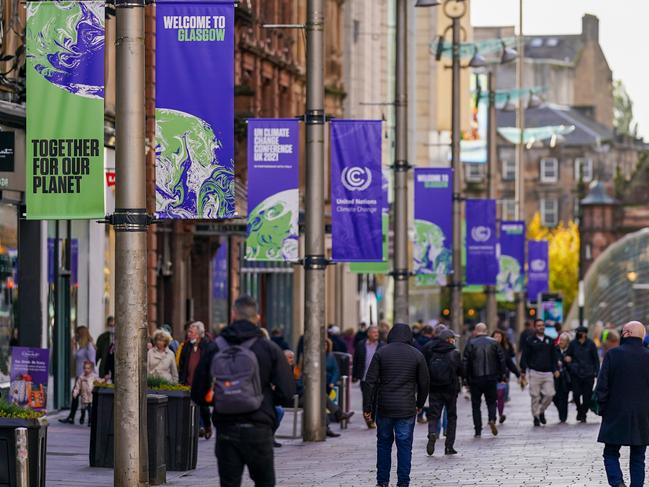
The two-week conference will take place against the backdrop of an energy crisis in Europe that some have blamed on the rush to embrace renewables.
British Prime Minister Boris Johnson has said he is worried COP26 will fail.
Even the Queen and the Pope have had to withdraw because of health issues.
Could COP26 be cooked before it even begins?
Climate Council CEO Amanda McKenzie doesn’t think so.
“The Saudis, the Russians and the Australians have all been considered laggards in this regard, so it’s not surprising those three countries have advanced a longer term target,” she said.
“I think it’s actually a really good sign that even the laggards are coming to the table.”
Momentum shouldn’t just be measured by the actions of countries, Ms McKenzie said, predicting Glasgow would feature a plethora of announcements from businesses, as well as state, provincial and local governments.
DIVIDED OPINIONS
Australian Prime Minister Scott Morrison and Energy and Emissions Reduction Minister Angus Taylor lob in Glasgow with a policy to reach net zero by 2050, but no increase on the existing goal of cutting emissions by 26-28 per cent by 2030.
They will however produce projections showing Australia will likely reduce its greenhouse gases by 30-35 per cent by then anyway.

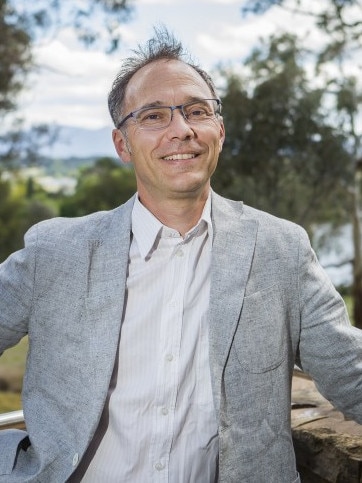
The Morrison government’s position has divided opinions.
Boris Johnson heralded the 2050 goal as “heroic”.
CNN said the lack of an updated 2030 goal made Australia “the rich world’s weakest link”.
John Connor, CEO of the Carbon Market Institute, said the lack of a stronger 2030 target would expose Australia to “potential carbon tariffs and higher capital costs”.
The United Nations Environment Program (UNEP) Emissions Gap report, released on Wednesday, argued the Paris Agreement signatory countries would need to cut emissions by 55 per cent by 2030 to limit global warming to 1.5°C.
Alok Sharma, the incoming COP26 President, said there had been “progress, but not enough” on cutting emissions.
“We especially need the biggest emitters, the G20 nations, to come forward with stronger commitments to 2030 if we are to keep 1.5°C in reach over this critical decade,” Mr Sharma said.
The UNEP report stated current climate promises for 2030 put the world on track for 2.7°C of warming by the end of the 21st century – a catastrophic rise that one recent Australian report claimed would almost certainly wipe out Australia’s Great Barrier Reef.
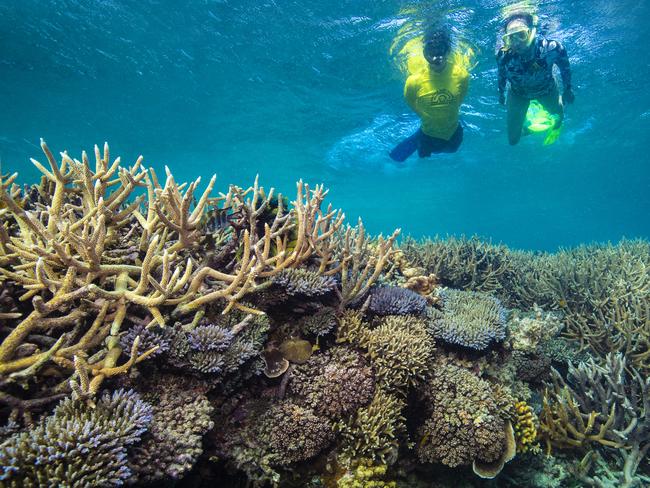
Mr Morrison appears unlikely to be moved by international pressure over 2030 targets.
“We won’t be lectured by others who do not understand Australia,” he said while launching the government’s net zero plan on Tuesday.
“The Australian Way is all about how you do it, and not if you do it. It’s about getting it done.”
A TRANSPARENT DEBATE
But the Australian government will be seeking to influence negotiations in Glasgow, particularly in the area of transparency of reporting greenhouse gas emissions.
Ms McKenzie said the Australian government’s focus on this area was “very welcome” and there were high hopes progress could be made at Glasgow.
But it’s a contested topic. Countries cling to their baseline years and reporting quirks to give themselves maximum advantage. Some nations like to sell carbon offsets to other nations, but then claim them against their own efforts – a double counting mechanism that Brazil in particular is reportedly fond of.
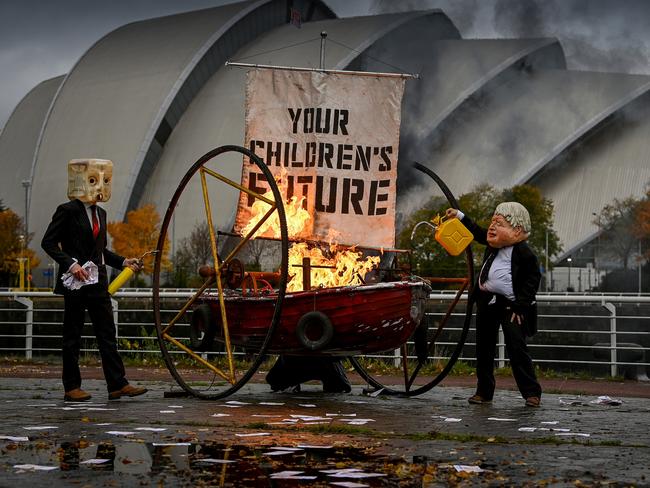
According to Professor Frank Jotzo, Director of the Centre for Climate Economics and Policy at ANU, transparency would be one of the “defining issues” in climate negotiations over the next few years, but currently “the default position is one of distrust between countries.”
“For example, with China, emissions data is in general not as transparent as it is for other countries,” he said.
“But conversely those concerns are also voiced with regard to Australia, because in our case the land sector and land based emissions are an important part of the national emissions balance – and the estimation of those emissions is necessarily subject to much greater uncertainty than emissions from fossil fuel combustion and industry.”
With Russia and Saudia Arabia joining China and Indonesia in adopting a net zero goal for 2060, some commentators have expressed concern this could act as a global drag on progress. All eyes will be on India, which has yet to announce its strategy for cutting emissions.
Prof Jotzo said the world could eventually settle into three streams of climate ambition.
“We’re already seeing in the EU attempts to go for earlier net zero targets than 2050,” he said.
“So in due course we might well wind up with a group of countries that takes 2040 or 2045 as a target, one that takes 2050 and one that takes 2060.”
Originally published as Glasgow COP26 climate conference: Angus Taylor reveals Australia’s priority





